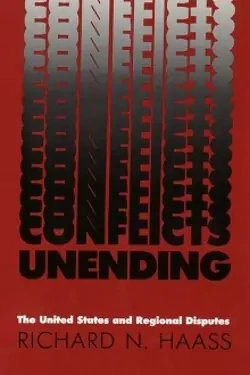
Conflicts Unending
The United States and Regional Disputes

- Book
- Foreign policy analyses written by CFR fellows and published by the trade presses, academic presses, or the Council on Foreign Relations Press.
More on:
Richard N. Haass, senior director for Near East and South Asian affairs, National Security Council, argues that many regional conflicts are simply not ripe for solution and that international mediators who set out to accomplish less are likely to accomplish more. Despite the ingrained American impulse to push directly for solutions, notes Haass, U.S. diplomats should proceed indirectly, concentrating on confidence-building measures that promote regional stability and preparing for more ambitious diplomacy that will succeed only when the time is ripe. Examining five long-running regional disputes--Greece and Turkey, India and Pakistan, South African whites and blacks, Catholics and Protestants in Northern Ireland, Arabs and Israelis--Haass explores possible solutions in each case, explains why they have remained beyond reach, and recommends steps the U.S. can take to promote the "ripeness" that is the central metaphor of this thought-provoking study.
More on:
 Online Store
Online Store